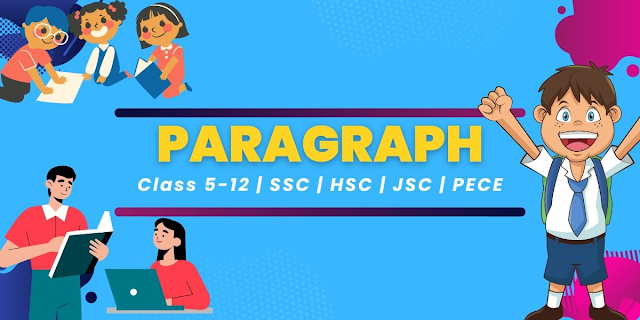The Liberation War of Bangladesh Paragraph for SSC & HSC Students in 300, 500 words
The Liberation War of Bangladesh Paragraph for SSC in 300 words
The Liberation War of Bangladesh, a defining moment in the nation's history, unfolded in 1971 as a struggle for independence from Pakistani rule. Driven by years of political, economic, and cultural disparities between East and West Pakistan, the people of East Pakistan (now Bangladesh) rallied under the leadership of figures like Sheikh Mujibur Rahman to demand autonomy and recognition of their linguistic and cultural identity. The Pakistani military's brutal crackdown on Bengali nationalists and civilians led to widespread atrocities, prompting the declaration of independence on March 26, 1971. The subsequent nine-month-long conflict, marked by fierce battles and humanitarian crises, culminated in the victory of the Mukti Bahini (Liberation Army) and the intervention of Indian armed forces. On December 16, 1971, Bangladesh emerged as an independent nation, paying a heavy toll in lives lost and suffering endured. The Liberation War remains a symbol of the indomitable spirit and resilience of the Bangladeshi people in their pursuit of sovereignty and freedom.
The Liberation War of Bangladesh Paragraph for HSC in 500 words
The Liberation War of Bangladesh, etched in history as a transformative struggle, is a poignant tale of a nation's fight for independence and self-determination. Rooted in the complex dynamics between East and West Pakistan, the war emerged as a response to decades of political marginalization, economic exploitation, and cultural suppression faced by the Bengali-speaking population of East Pakistan.
The seeds of discontent were sown through disparities in resource allocation, discriminatory policies, and a sense of neglect from the ruling authorities in West Pakistan. The Bengali people, under the visionary leadership of Sheikh Mujibur Rahman, sought autonomy and recognition of their distinct linguistic and cultural identity. Tensions escalated as political negotiations faltered, leading to the brutal crackdown by the Pakistani military on March 25, 1971. This operation unleashed a wave of violence and atrocities against civilians, compelling the people of East Pakistan to declare their independence on March 26, 1971. The ensuing nine months were marked by a fierce struggle between the Mukti Bahini, a resistance force comprising Bengali freedom fighters, and the Pakistani military. The Liberation War bore witness to intense battles, strategic maneuvers, and a humanitarian crisis as millions of refugees fled to neighboring India to escape the violence. The international community watched with growing concern as reports of mass killings and human rights abuses emerged from the conflict zone. India, deeply moved by the suffering of the Bengali people and recognizing the importance of regional stability, intervened militarily in support of the Mukti Bahini on December 3, 1971. This intervention proved decisive, as it led to a swift and resounding victory for the combined forces. On December 16, 1971, Pakistani forces in East Pakistan surrendered, paving the way for the birth of the independent nation of Bangladesh. The Liberation War came at a significant cost. The conflict resulted in a staggering loss of life, displacement of millions, and widespread devastation. The scars of war still resonate within the collective memory of the Bangladeshi people. However, the war also stands as a testament to their unwavering courage, unity, and sacrifice. The Liberation War of Bangladesh holds global significance, symbolizing the universal struggle for human rights, self-determination, and justice. The international community acknowledged Bangladesh's independence, and the nation embarked on a journey of reconstruction and healing. The war's legacy serves as a reminder that the quest for freedom can overcome seemingly insurmountable challenges and that the spirit of resilience can inspire generations to come. In conclusion, the Liberation War of Bangladesh remains a remarkable chapter in history, underscoring the power of a united people's determination to break free from oppression and establish their own sovereign identity.

